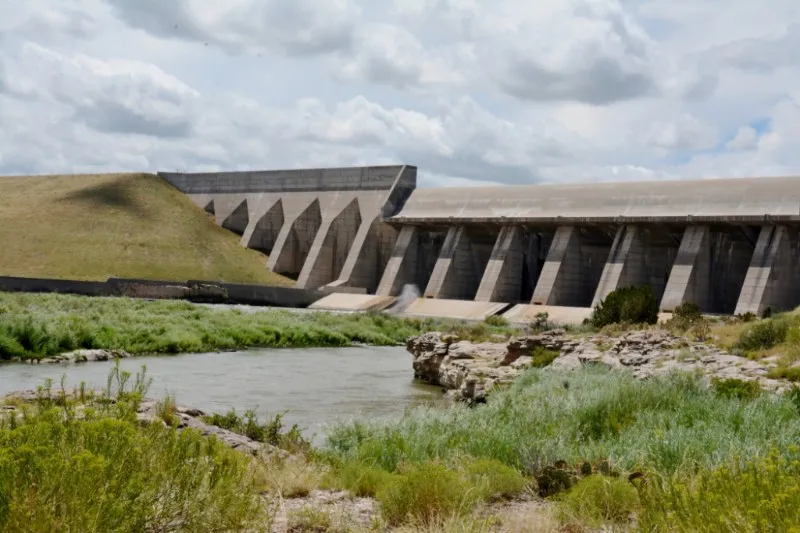
Daily Audio Newscast Afternoon Update - September 16, 2025
© INDU BACHKHETI - iStock-1336427297
News from around the nation.
Panic as Israel launches ground offensive in Gaza City; Charlie Kirk shooting suspect's first court hearing; Media literacy curriculum fights disinformation in CA, across U.S; In tough times, MN family farm defies the odds; NM's elimination of parole fees could reduce housing, food insecurity.
Transcript
The Public News Service Tuesday afternoon update, I'm Mike Clifford.
Palestinians in Gaza City describe scenes of panic today as Israel launched a new ground operation sending in troops and tanks while pounding the area with heavy airstrikes.
That from the New York Times.
They report by Tuesday the Israeli military said roughly half a million people remain in Gaza after 350,000 had heeded evacuation orders and fled, compounding a humanitarian disaster in the territory where most people have been displaced multiple times and hunger is rampant after nearly two years of war.
And from CNN, Charlie Kirk shooting suspect Tyler Robinson expected to make his first court appearance at 5 p.m. Eastern time today.
The hearing will be held virtually.
CNN notice Robinson apparently confessed to killing the right wing activist in a small chat group on the online platform Discord.
That's according to the Washington Post.
In an age rife with online misinformation and disinformation, one nonpartisan nonprofit that got its start at Stanford University offers a free curriculum to help schools arm students with the tools to evaluate internet claims.
The digital inquiry group called DIG helps teachers integrate critical thinking skills into many subjects.
Stanford professor Sam Weinberg co-founded DIG and says the curriculum has been downloaded 16 million times so far.
All information comes from a source and to evaluate the quality of information, we have to take into account who produced it and why.
DIG teaches a technique called lateral reading, where you leave a site, find out what others are saying about it, make a judgment about its credibility, and then decide if it is worth your attention.
I'm Suzanne Potter.
And the annual Farm Aid concert and its mission to elevate the nation's family farms will be held in Minnesota this weekend. an operation in the western half of the state might give hope about ways to survive hardship.
Near Kirkoven, Jim Vanderpoel helps run Pastures of Plenty Farm, which has been in his family for multiple generations.
He says for a long time, it was mostly corn and soybeans, but over the decades, the farm has expanded when it raises and grows, while emphasizing soil health.
There's not much hope in farm country these days, but what we're practicing diversifies our income, and so I think for that reason, We are in a little better shape than what we would have been had we not done these things.
I'm Mike Moen.
And until recently, New Mexicans in trouble with the law could owe thousands of dollars in fines and fees, a roadblock to rehabilitation according to a criminal justice advocacy group.
The nonprofit Fines and Fees Justice Center also found such payments don't improve public safety.
The center's New Mexico director, Monica Ault, says the research points to harm caused by excessive court costs.
We found that it's essentially driving housing insecurity, food insecurity and provides for a general financial hardship.
Legislation adopted in June means that New Mexicans with supervised release from prison will no longer have to pay parole fees.
This is Public News Service.
Cancer research advocates are calling on the Congress to provide more funding to combat the disease amid uncertainty in the Trump administration.
But budget proposals from both House and Senate lawmakers offer increased funding for cancer The 2021-22 Indiana Cancer Consortium Control Plan report indicates that two and five Hoosiers now living will eventually develop some form of cancer.
Mark Fleury is with the American Cancer Society Cancer Action Network.
He says research funding is in a state of limbo that could dissuade people from entering the field.
"If you're considering a career in scientific research and you see the environment in front of you, there would be a lot of reason to decide to take another path."
President Trump's science advisor, Michael Kratzios, has defended the administration's position, arguing that political bias, misguided professional culture, and a focus on diversity, equity, and inclusion have caused the public to lose trust in researchers.
I'm Terri Dee reporting.
And despite the federal cutbacks, Maine officials say heat pump training programs will continue.
The state aims to have 275,000 pumps installed in homes and businesses by 2027 to help reduce emissions and lower energy prices.
Tagwongo Obomsowin with the governor's energy office says it's still too soon to know how cuts to federal grants and changes in clean energy policies will impact those plans.
Well, there is some uncertainty out there.
State's commitments to clean energy and strong policy and incentive environment are expected to continue to fuel job growth in the state.
She says heat pump installation is creating good paying jobs, especially in rural areas like Somerset County, where the number of clean energy workers has grown by more than 40 percent since 2020.
But officials warn the loss of federal tax incentives for heat pumps next year could lower demand and undercut a growing workforce.
This story was produced with original reporting from Christian Moravec with Maine Monitor.
I'm Catherine Carley.
Finally, as Congress moves to overturn federal land management plans in three states, a conservation expert say that Wyoming is following the standard public process instead.
The US House has passed resolutions under the Congressional Review Act to nullify resource management plans in Montana, North Dakota, and Alaska.
While Wyoming has faced similar controversies over its plans in Rock Springs and Buffalo, it is not targeted by the current congressional action.
David Wilms with the National Wildlife Federation says the administration is working collaboratively to improve those plans.
And they're actually gonna work with the public and take public input and work on amending those plans to address some of the underlying concerns that they might have in the resource management plans there rather than taking this more extreme approach of using the Congressional Review Act.
I'm Tramiel Gomes.
This is Mike Clifford for Public News Service.
Member and listener supported.
Find our trust indicators at publicnewsservice.org.

















